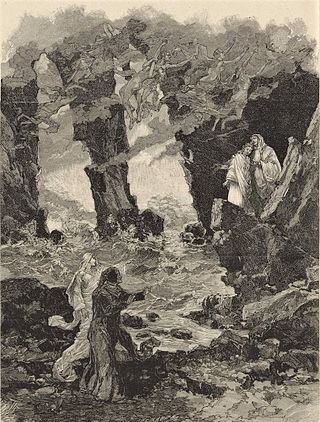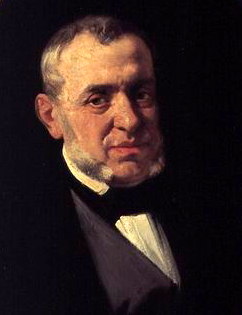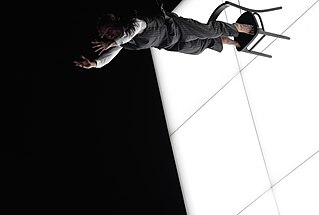
The Divine Comedy is an Italian narrative poem by Dante Alighieri, begun c. 1308 and completed around 1321, shortly before the author's death. It is widely considered the pre-eminent work in Italian literature and one of the greatest works of Western literature. The poem's imaginative vision of the afterlife is representative of the medieval worldview as it existed in the Western Church by the 14th century. It helped establish the Tuscan language, in which it is written, as the standardized Italian language. It is divided into three parts: Inferno, Purgatorio, and Paradiso.

Francesca da Rimini or Francesca da Polenta was a medieval noblewoman of Ravenna, who was murdered by her husband, Giovanni Malatesta, upon his discovery of her affair with his brother, Paolo Malatesta. She was a contemporary of Dante Alighieri, who portrayed her as a character in the Divine Comedy.

Eduard Francevič Naprávnik was a Czech conductor and composer. Nápravník settled in Russian Empire and is best known for his leading role in Russian musical life as the principal conductor of the Imperial Mariinsky Theatre in Saint Petersburg for many decades. In that capacity, he conducted the premieres of many operas by Russian composers, including those by Mussorgsky, Tchaikovsky and Rimsky-Korsakov.

The Oper Frankfurt is a German opera company based in Frankfurt.

The Divine Comedy has been a source of inspiration for artists, musicians, and authors since its appearance in the late 13th and early 14th centuries. Works are included here if they have been described by scholars as relating substantially in their structure or content to the Divine Comedy.

Lucia Ronchetti is an Italian composer.
Lost Highway is a 2003 opera adaptation of the 1997 David Lynch film of the same name, by Austrian composer Olga Neuwirth with the libretto by 2004 Nobel Prize-winner Elfriede Jelinek.

Françoise de Rimini is an opera in four acts with a prologue and an epilogue. The last opera composed by Ambroise Thomas, it sets a French libretto by Michel Carré and Jules Barbier which is based on an episode from Dante's Divine Comedy. The opera was first performed by the Paris Opera on 14 April 1882 but fell into relative obscurity until its revival in 2011.

Francesca da Rimini is an 1831 opera by Saverio Mercadante to a libretto by Felice Romani based on Silvio Pellico's play which had already been set twice and ultimately was set by fifteen composers. It was to be premiered in Madrid in 1831, but the premiere was cancelled and the opera lost.
Kateryna Kasper is a Ukrainian operatic soprano. A member of the Oper Frankfurt, she has appeared in major international opera houses. She has performed in recitals and recordings. Her broad repertory includes works from Cavalieri's Spiel von Seele und Körper to the premiere of Der goldene Drache by Péter Eötvös.

Der goldene Drache is an opera by Hungarian composer Péter Eötvös to a libretto by Roland Schimmelpfennig, based on his play of the same name. It premiered on 29 June 2014 at the Bockenheimer Depot in Frankfurt, conducted by the composer.

Städtische Bühnen Frankfurt is the municipal theatre company of Frankfurt, the largest city of Hesse Germany. The name dates back to 1919. The company is structured today in two organisations, Oper Frankfurt for opera, and Schauspiel Frankfurt for drama (Schauspiel).
Barbara Zechmeister is a German operatic soprano and voice teacher. A member of the Oper Frankfurt from 1996, she has appeared in major European opera houses and international festivals. She has performed in world premieres, and in recitals and recordings. Zechmeister has been a voice teacher at Dr. Hoch's Konservatorium since 2005.

Der Mieter is an opera after the novel The Tenant by Roland Topor, with music by Arnulf Herrmann composed in 2012 to 2017. The libretto was written by Händl Klaus. Commissioned by the Oper Frankfurt, the opera was first performed there on 12 November 2017, directed by Johannes Erath and conducted by Kazushi Ōno.
Tito Ceccherini is an Italian conductor with a focus on opera, and an interest in modern repertoire. He has performed at major opera houses in Europe, leading several world premieres.

Die ersten Menschen(The first humans) is an opera in two acts by Rudi Stephan. For the libretto the composer chose a drama of the same name by Otto Borngräber. The opera was premiered at the Oper Frankfurt on 1 July 1920.
Beth Taylor is a Scottish operatic mezzo-soprano, who has performed mainly in Europe. At the Oper Frankfurt, she performed a title role in Rossini's Bianca e Falliero.
R. B. Schlather is an American stage director especially for opera who has worked internationally. He has directed world premieres of operas by Hertzberg, The Wake World and The Rose Elf. He made his debut in Europe at Oper Frankfurt with Handel's Tamerlano in 2019, returning in 2021 for Cimarosa's L'Italiana in Londra and in 2022 for Puccini's Madama Butterfly.
Bianca Andrew is an operatic mezzo-soprano from New Zealand who has appeared in internationally, based at the Oper Frankfurt.
Michael McCown is an American operatic tenor, based at the Oper Frankfurt. While many of the ninety roles in his repertoire are comprimario, he has portrayed lead roles such as Britten's Captain Vere, Abott and Tempter, and Nebukadnezar.













